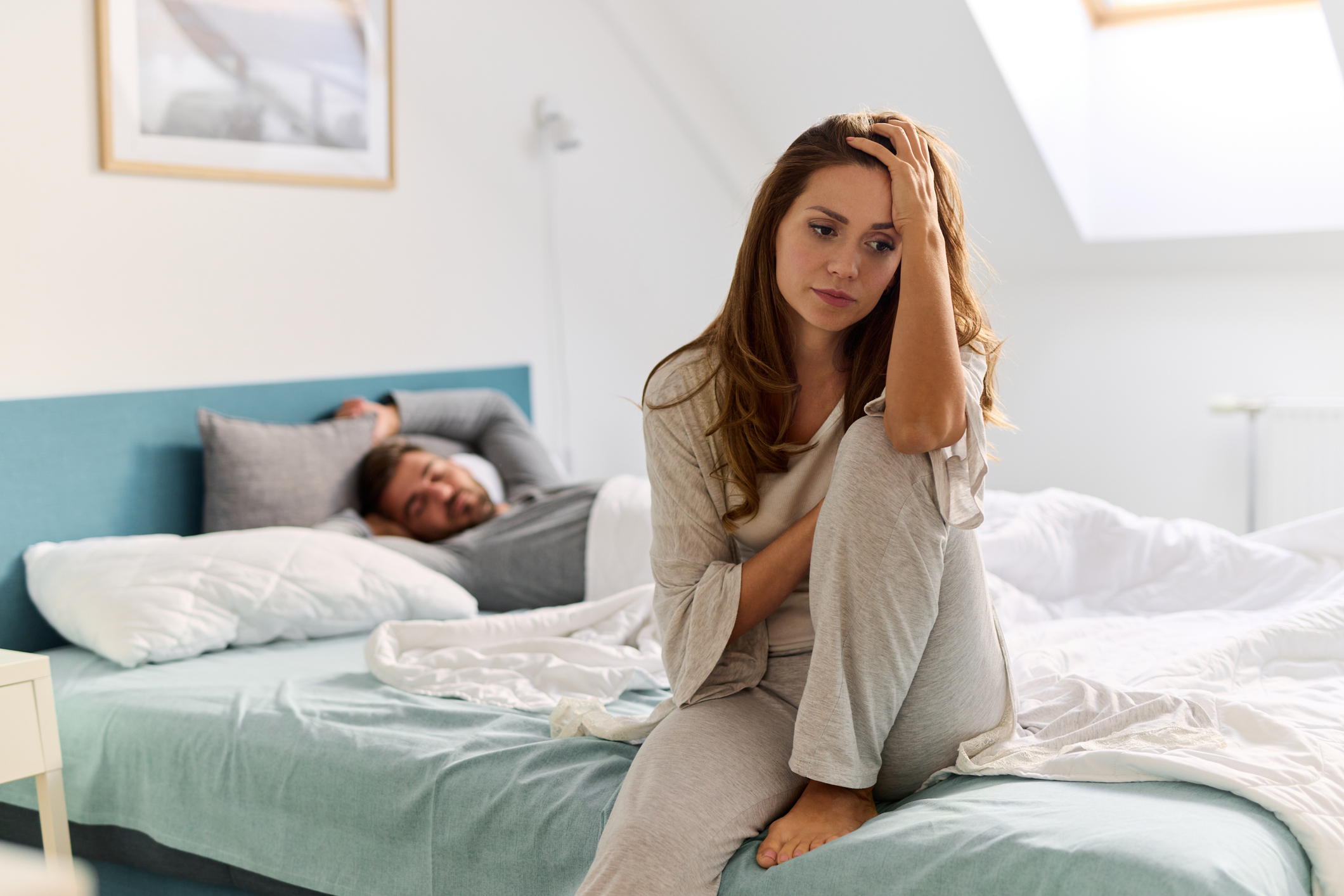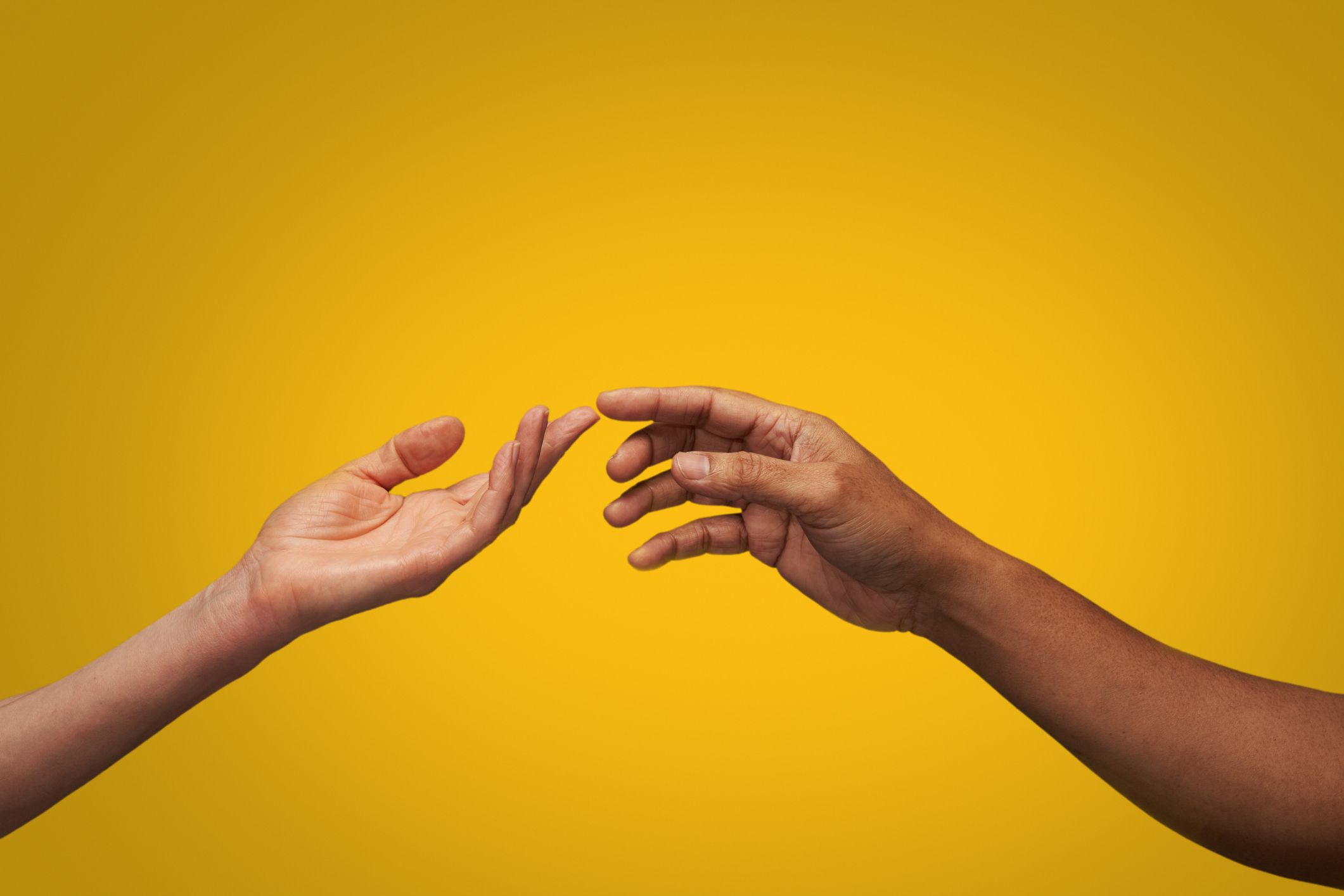
Celebrity news, beauty, fashion advice, and fascinating features, delivered straight to your inbox!
You are now subscribed
Your newsletter sign-up was successful
1 in 5 men are thought to experience it in the UK alone.
Did you know? It's thought that around 4.3 million men suffer from erectile dysfunction - that's one in five men across the UK.
Erectile dysfunction can affect not only men but also couples, threatening to take the fun out of sex and make it feel like a chore. It can add to any underlying frustration or stress that you may be feeling as a couple and, as the partner of an ED sufferer, it can be a huge dent to your confidence, especially as you often take on the responsibility for our partner’s arousal.
Urologists and therapists have their theories as to why erectile dysfunction is more prevalent today. Sex therapist doctor Morgan Francis cites an increase in pornography viewing – watching porn frequently (that's three to five times a week, FYI) can result in a loss of appetite for real-life sexual interaction as the brain’s dopamine reserves are consistently diminished from overstimulation.
One study by the Naval Medical Centre in San Diego on the impact of porn on sexual desire found that of the 300 men and women who took part, porn didn’t affect the women’s sex drives at all, but it did for men, with three per cent claiming they would rather watch porn than have sex. Urologist doctor Joseph Alukal from New York University suggests this is due to the unrealistic expectations that porn represents.
We spoke to pharmacist Abbas Kananni from Chemist Click and sex therapist Joanna Benfield. Here, they offer their advice erectile dysfunction symptoms, causes, treatments, sand more, plus share how to communicate with your partner about their ED.
Erectile dysfunction: what is it?
Erectile dysfunction, sometimes abbreviated to ED or impotence, is the term used to describe when a man is unable to become erect, either fully or partly, or maintain an erection for long enough to complete a sexual act such as intercourse, explains the pharmacist. "Sometimes it happens only once, or it can be sporadic," Kananni continues.
Celebrity news, beauty, fashion advice, and fascinating features, delivered straight to your inbox!
When this happens several times, it can be distressing and can have a negative impact on self-esteem and relationships, he goes on. "However, ED is usually nothing to worry about and there are several ways to effectively manage and treat ED which are cost-effective and safe," he shares.

Erectile dysfunction symptoms
There is one simple and over-arching symptom: erectile dysfunction simply explains when men are unable to get or keep an erection.
Erectile dysfunction causes: 5 to know about
There are a whole host of things that can cause ED, from an unhealthy lifestyle, to drug use, to underlying psychological issues.
1. An unhealthy lifestyle
For some men, like 32-year-old Ali, it was an unhealthy lifestyle in his twenties that triggered erectile dysfunction.
"I was hitting the beers hard every weekend and doing the occasional line of coke. I’d go to bed, get horny, reach down, only to realise my penis had shrunk. This went on for months – years even – on and off. I hardly ever wanked. Then I had a heart scare, gave up the partying and went back to normal."
2. Drug use
Did you know? The UK has the highest rate of cocaine use among young adults in Europe and this, along with heavy drinking, can cause blood vessels to narrow, preventing enough blood from getting to the penis.
Similarly, cannabis smokers should be wary of "weed dick". According to doctor Justin Lehmiller, assistant professor of social psychology at Ball State University in Indiana, daily smokers are three times more likely to suffer from erectile dysfunction compared to non-smokers.

3. Junk food
Junk food is another culprit, as it can increase your blood pressure and cholesterol which restricts circulation and hardens arteries.
4. Lack of sleep
As above, an unhealthy lifestyle can play a large part in ED issues - including not getting enough sleep. Do read our guides to insomnia treatment and how to get to sleep, if you're struggling.
5. Psychological issues
Finally, causes can be psychological as well as physical, explains Kananni.
"Psychological factors such as chronic stress and anxiety are common contributors to ED," he shares. If you are struggling mentally and noticing physical symptoms, too, do reach out to your GP. Not sure if you're anxious or stressed? Our guide to stress vs anxiety will help.
Erectile dysfunction treatments
The most common treatments for ED, according to the pharmacist, are:
- Sildenafil tablets
- Tadalafil tablets
"These medications both work similarly to each other, however there are subtle differences in how long they take to work and remain effective for," he shares. Fun fact: more than 66% of men report having improved erections after taking one of these tablets.
Do note here, though: these tablets do not increase sex drive, rather, only work with sexual stimulation.

How to communicate with your partner about his ED
So, your partner has been suffering with ED? Don't worry - you're not alone and there are plenty of ways to deal with it in a sensitive manner.
1. Don’t be scared to talk
Sometimes it can feel daunting to bring up the topic of ED, right? "Chances are, you may feel just as embarrassed in bringing it up as your partner feels experiencing it," shares Kannani.
Benfield says it’s important you don’t interpret erectile dysfunction as a personal slight, as this can lead to you pulling away from each other out of fear of rejection.
So rest assured: there's no need to feel guilt or shame, both experts share. "There can be a number of reasons for why ED happens, and the best way to resolve any feelings with your partner is to talk."
Try this: Set aside time to talk about the issue, rather than waiting to talk about it during sex, the expert advises. "Talking mid-sex could create a situation where you both may feel tense. "Set aside some time in the day and have an adult conversation about the issue," he recommends. "In most cases, he will also want to talk about it but may feel embarrassed, so if you can be bold in initiating the conversation you are already halfway there."
Similarly, when treating couples, Benfield focuses on the issues behind erectile dysfunction by asking patients to avoid penetrative sex for a few weeks and reconnecting through non-intimate touch, such as sharing a bath.
2. Be supportive
Try and remember that your partner is sensitive: experiencing ED as a male can be quite embarrassing and talking about it can sometimes be difficult, he explains.
Try this: Ensure your language is positive, encouraging and supportive. "Try and show your partner that you care and are committed to the relationship before discussing treatment options," he advises.
3. Be open to resolution and experimentation
Try and offer helpful advice and thoughtful ways of helping your partner tackle his ED.
Try this: Why not experiment with some of the best sex toys, learn how to talk about a fetish, read up on how to be intimate, up the foreplay, or even watch porn together? Bottom line: "Being open with one another is imperative," he shares.

4. Avoid patronising language
The worst thing you can do is talk down to your partner, make him feel like he has a problem or become patronising, the expert warns.
Try this: "ED is incredibly common and there are many reasons why this condition happens - try to remain aware of what you are saying, offer helpful ideas and input," he says. Don't jump straight to discussing things like medication or therapy - instead, perhaps talk about what he feels during sex, or if there is anything you can do to increase his sex drive.
5. Do your research
And finally, doing your bit to understand ED is really important. "Your partner will be grateful when he realises that you have an understanding of this condition," shares the pro.
Try this: Check out ED dedicated websites or sites that offer expert-led advice on the condition. "There are many health sites which offer advice for ED such as the NHS, and tips and tricks for helping your partner get in the mood and increase sex drive," Kannani shares. "You may also want to help your partner look into treatment options and see what will work for the both of you."
A male perspective: "I blamed the drink - but when it happened again, I felt like a failure."
Matt* blamed himself - until he realised he wasn't alone.
"The first time it happened, I blamed ‘the drink’. It was late, we’d shared a bottle of rum, it was inevitable. The second time, I was distracted before an exam and my head was elsewhere. The third, tiredness. By the fourth, fifth and sixth times, I had become exhausted, feeling myself getting aroused only to have the flicker of hope snuffed out as my erection subsided and the condom rolled off again. I was 23 years old and not being hard felt like a failure."
"I may be older now, and bolstered by the reassurance that my erectile dysfunction (ED) turned out to be a short-lived blip, but the problem is far from unusual for twenty-somethings. For older men, the condition is typically related to atherosclerosis (clogged arteries), diabetes or high blood pressure."
Similarly, Mark*, 29, suffered from ED for six months after being made redundant.
"I just clammed up in the bedroom, which left me feeling emasculated and angry that it was happening to me at such a young age. Not being able to “provide” in more ways than one left me overthinking the problem, which of course exacerbated it.’ In Mark’s case, his erectile dysfunction was temporary and things picked up after he found a new job."
A female perspective: "I felt I couldn’t satisfy him"
Kate’s partner Pete* experienced ED six months into their relationship after a death in his family. Here, Kate explains how they got their sex life back on track.
"Because we’re told as teenagers that sexual attraction equates to how hard a man is, I couldn’t get my head around the fact that Pete was still sexually attracted to me, even though he didn’t have an erection to prove it. I felt that I couldn’t satisfy him. It took a lot of openness before we accepted it was nobody’s fault."
"Pete would still get turned on, particularly every time I bent over to pick something up, but that arousal just didn’t manifest itself as an erection."
"He eventually had counselling to work through his emotional issues and treat the ED. Gradually, over a period of weeks, we focused on cuddling and massage, before moving towards penetrative sex when his erections began to reappear. We don’t have any problems any more, but even if we did, we’ve learned that it’s a passing phase. We now have the coping skills – such as ad-hoc therapy and refocusing on non-penetrative sex – and crucially, we talk more openly than ever before, in and out of the bedroom."
*Names have been changed

Ally is Marie Claire UK's Senior Health and Sustainability Editor, a well-regarded wellness expert, ten-time marathoner, and Boston Qualifying runner.
Utilising her impressive skillset and exceptional quality of writing, she pens investigative, review and first-person pieces that consistently demonstrate flair and originality.
As well as writing, Ally manages a team of freelancers, oversees all commissioning and strategy for her pillars, and spearheads the brand's annual Women in Sport covers, interviewing and shooting the likes of Mary Earps, Millie Bright, and Ilona Maher. Shortlisted for three BSMEs and winning one in 2022, Ally lives and breathes her verticals: her eye for a story and connections within the wellness sphere are unrivalled. Follow Ally on Instagram for more.
